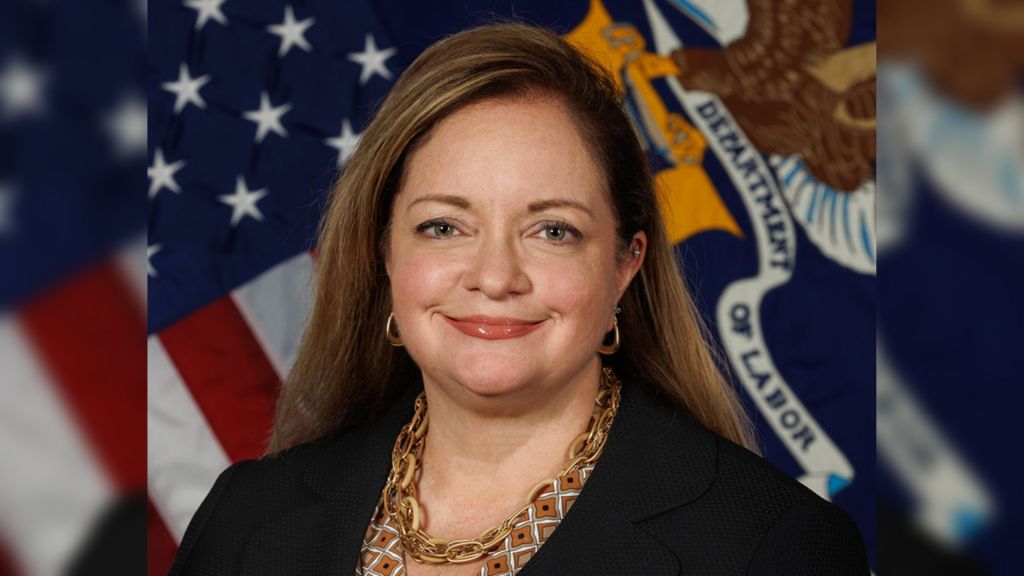By Aria Brent
AFRO Staff Writer
abrent@afro.com
The Employee Benefit Security Administration (EBSA) is a national agency responsible for assisting citizens with their employer-sponsored retirement benefits and health benefit plans. Although the agency focuses on helping people with their plans, they recognize that lots of people have questions about the billing process when using benefits. There can also be confusion on how to properly use coverage and how to fully understand the benefits. EBSA assistant secretary Lisa Gomez spoke with the AFRO on how to address all of these concerns and more.

AFRO: Why is the Black community disproportionately burdened by medical debt?
LG: There are a lot of reasons that the Black community may be burdened more than some other communities. It certainly could have to do with the type of coverage that you have and making sure that you understand the coverage.
You want to make sure that you are using the coverage correctly–that you know what type of facility to go to what’s in the network and what’s not in the network. Understand what your rights are so that if you are going to the emergency room for emergency services you know that those types of claims should be covered in a greater amount by your health coverage.
For a very long time people were used to going to the emergency room for services when it’s not really an emergency; and whether it be going to urgent care instead or contacting a 24-hour nurse line–finding out what other types of benefits there are . If you are going to the emergency room and it is truly an emergency, whether it’s an in-network hospital or out-of-network hospital there are protections in place. But for people who were used to using the emergency room as more of a first stop for care there could be out-of-pocket medical bills. It’s really important to understand what kind of benefits are available under your plan, and you know where you should be going when you need help. We are the agency that oversees all those types of plans, and if you contact us, we can help walk you through your plan documents.
AFRO: How crucial is the training for the people who are in the human resource departments and in the individual companies who are explaining the plans and the benefits to the employees?
LG: It’s incredibly crucial that the people who are the first line of contact for employees if they have a question about their benefits When you get your benefits through work, you want to be able to go to somebody that you hopefully can trust at your employer. It should be someone that can explain to you what your benefits are, how to take advantage of them and how everything works. If that person at your job who you’re going to and you’re relying upon isn’t properly trained, doesn’t give you the right information, doesn’t tell you that there are
special requirements that you have to follow–like maybe getting a pre-authorization before you go to a certain type of doctor, get a certain type of procedure or just how to make the plan work–it can lead you down a path where you proceed in one way but if you proceeded in another way you would have been better off. Nobody wants to be in the situation where you’re stuck in a bad place and you’re now looking at who to point fingers at. Better to have the people you’re getting information from to have training to begin with. Another thing that we do here, we don’t offer training, per se, to those types of HR people but we do put out a lot of information for plans and for plan administrators.
AFRO: What are the first steps that you should take if you think that there are errors in a medical bill that you’ve received?
LG: I think the first thing is to be an educated consumer for your own health care. The first thing is look at the documents that you get to see if there’s an error in the first place. I think that too often you go to the doctor or you go to the hospital and you might get things coming in from your insurance company that are showing what the insurance company did with that bill. How often do people actually open that up and take a good look at it to see what it says? You might get a bill from your insurance company from your doctor saying that you owe money. You don’t owe money. So the first thing is to actually look at these things when they’re coming in and trying to make sure you understand it. There’s also a high level of health care fraud, and lots of people out there might get a bill in the mail or something saying that you went to the doctor on this date, and you didn’t actually go. When you’re looking at these bills, whether it be a bill or something coming in from your health coverage that looks to be incorrect the first step would be contacting your doctor or the hospital. If it’s a bill coming in from them that looks wrong, point it out to them and find out what’s going on because people are human…they make mistakes, and so it may be something that’s easily fixable on their end. If it’s something where you get something back from your health coverage and it looks wrong again, I would say the first step is to contact either your HR department or contact the health coverage provider and say ‘You know, it looks like there’s a problem.’ At that point if it’s still not fixed then you know certainly you would want to submit an appeal to the health coverage to say, ‘I think something was wrong here.’ You can contact the Employee Benefit Security Administration at that point to submit an appeal.
AFRO: How can expansion in programming on the federal level help with the issues that we’re seeing when it comes to the high cost of medical care and the billing?
LG : I think that the more that the federal government and Congress are making changes to expand coverage, whether it be adding additional requirements of what plans need to be covered, making additional requirements for what circumstances claims can be denied or just pending rights, there would be more comprehensive benefits which means bills. We have been working with the Departments of Treasury and Health and Human Services to look at certain types of plans that might be out there offering more restricted benefits and that consumers might not be aware of when they’re purchasing a plan or their employer is purchasing a plan that really might not cover the level of benefits that one might expect. We’re looking at how can we limit those types of plans so that they either can’t be offered, or if they are offered people really know what they’re buying so they don’t think ‘Oh, I have health coverage,’ but then you realize it’s really limited health coverage. The No Surprises Act that was passed at the end of 2020 and has been implemented in the years since then offers a lot of protections. For example, if you were going to get emergency services and you had to go to an out-of-network hospital to have that done then the plan would have to pay those bills so that you wouldn’t get billed. The No Surprises Act fixes that so that plans can’t pay less just because that person’s out of the network. That was something that really improved and addressed a lot of problems that people had for out-of-pocket costs.
AFRO: How are you working with small business owners when it comes to insurance for their employees and offering these benefits and access to medical care?
LG:There’s a couple of different things. One is working with some of the rules that I mentioned on making sure that if people are purchasing these limited types of benefit insurance that small business owners know what they’re buying and how they work. We also work with small business owners to make sure that when they are going to an insurance broker to look for a type of plan we can help the small business owner if they were to contact us and ask us, ‘What questions should I be asking?’ and ‘What things should I be looking for in these plans?’ We help them in that regard. We partner with the Small Business Association to try to reach out to small businesses and help them to understand what questions they should be asking, what things they should be looking for and what their responsibilities as a business owner are going to be in offering these plans. Because they do have, you know, . Once an employer is going to offer a health plan, they should understand that they still have a responsibility to their employees and that there are certain things that they need to either do themselves or make sure that these service providers are doing on their behalf. We work with small businesses to make sure that they are empowered to go out there and get these types of coverages for their employees and know what they’re buying.
*This story has been edited for clarity.
The post Federal administrator Lisa Gomez shares tips to combat burden of medical bills appeared first on AFRO American Newspapers.











